Email marketing continues to reign supreme as the digital marketing channel with the highest return on investment in 2025, delivering an exceptional $32-45 for every $1 invested, according to Forbes.
With the market projected to reach $24.19 billion by 2033 (Straits Research), choosing the right email marketing platform has become more critical than ever for businesses of all sizes.
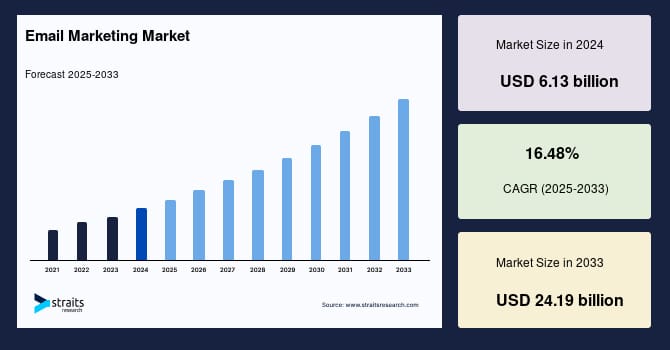
The challenge isn't finding an email marketing tool – it's selecting the one that perfectly aligns with your business needs, budget, and growth trajectory. From small businesses seeking cost-effective solutions to enterprises requiring advanced CRM integration, the right platform can transform your marketing ROI and customer relationships.
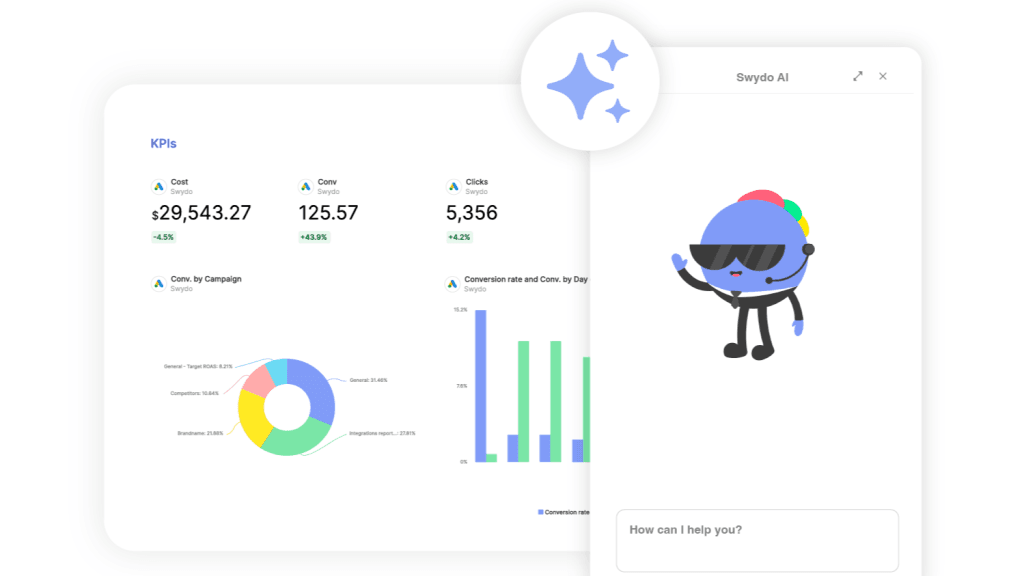
Platform Selection Determines Your Marketing Success in 2025
Email tools have evolved way beyond simple newsletters. Today's platforms pack AI, predictive analytics, and automation that can seriously boost your results. The best businesses aren't just sending emails – they're building customer journeys that span multiple touchpoints.
And the stakes keep getting higher. Google, Yahoo, and Microsoft now require SPF, DKIM, and DMARC authentication for bulk senders (Google and Yahoo, Microsoft). Plus, 55% of emails get opened on mobile (Growth-onomics).
Think about it – when was the last time you opened an email on desktop? Probably been a while, right?
Five Email Marketing Platforms That Dominate the Market
Let's cut through the noise. Each platform has found its sweet spot, and understanding these differences could save you thousands of dollars and months of headaches.
Mailchimp Leads With Complete Marketing Ecosystem
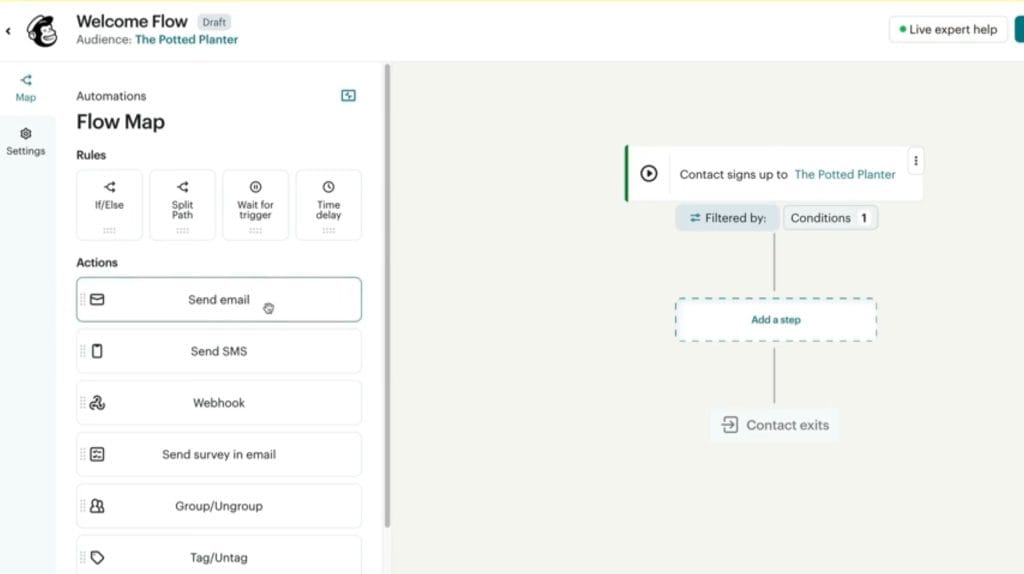
Mailchimp remains the market leader when you need a complete marketing ecosystem. Their 2025 AI Growth Assistant provides intelligent campaign recommendations, while 500+ integrations connect seamlessly with virtually every business tool you're already using.
Yes, it's expensive – starting at $13 monthly for the Essentials plan with 500 contacts, $20 monthly for the Standard plan with 500 contacts, and $350 monthly for the Premium plan with 10,000 contacts. But here's when that cost makes sense: if you're managing multiple marketing channels, need extensive integrations, and have a team that can leverage the advanced features. The Creative Studio centralizes brand asset management, making it ideal for agencies and larger teams.
Second choice: Constant Contact. Reliable platform with excellent customer support and event marketing features. Less expensive than Mailchimp but fewer advanced automation capabilities.
Perfect for established businesses and agencies that need comprehensive marketing tools and can justify the premium through extensive feature usage.
ActiveCampaign Delivers Sophisticated Automation for B2B Companies
When you need sophisticated automation workflows, ActiveCampaign delivers. Their visual builder includes 880+ pre-built automations with conditional logic that actually adapts to customer behavior (Venture Harbour).
What really sets them apart? ActiveCampaign is known for high deliverability rates, often exceeding industry averages, though recent tests show rates around 81.67% (EmailDeliverabilityReport.com). The built-in CRM means you don't need separate sales tools either.
ActiveCampaign pricing starts at $15/month for 1,000 contacts on the Starter plan, $49/month for the Plus plan, $149/month for the Pro plan, and $589/month for the Enterprise plan.
Second choice: GetResponse. Solid automation capabilities with conversion funnels and webinar integration. More affordable than ActiveCampaign and includes landing page builders.
This works best for B2B companies and agencies handling complex sales cycles. If you're nurturing leads over months, not days, these platforms make sense.
Klaviyo Dominates Ecommerce With Predictive Analytics
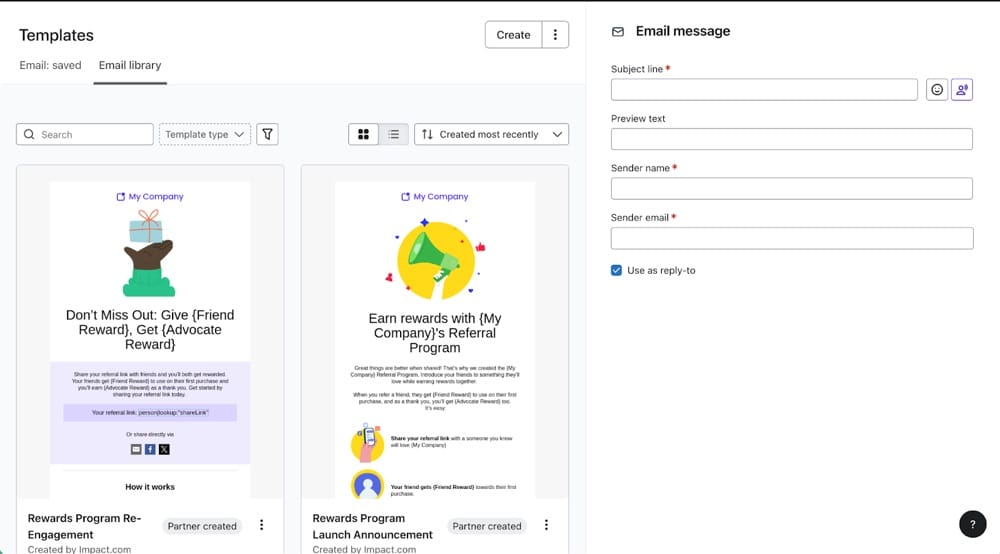
For online stores, Klaviyo has become the standard. Real-time syncing with Shopify, WooCommerce, and Magento creates instant behavioral triggers. Their predictive analytics actually forecast customer lifetime value accurately (Shopify App Store).
Users report 40% higher average order values compared to other platforms, though this figure is not officially verified. Klaviyo pricing starts at $20/month for 251–500 active profiles on the Email plan, with automatic upgrades based on your active profile count as of 2025. This represents a significant pricing change where you're billed based on all active profiles in your account, not just those you email regularly.
Second choice: Omnisend. Built specifically for ecommerce with similar features but more affordable pricing. Great automation workflows and decent analytics, though not quite as sophisticated as Klaviyo's predictive capabilities.
Are you selling products online? These platforms are worth the investment, but be prepared for Klaviyo's pricing model changes.
Brevo Provides Unlimited Contacts for Budget-Conscious Businesses
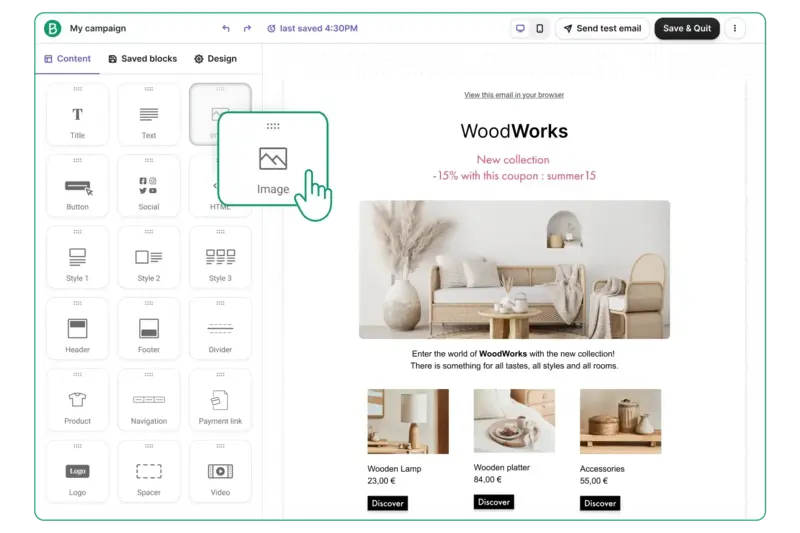
Brevo stands out with unlimited contacts on all plans – starting at just $9/month for the Starter plan (5,000 emails/month) and $18/month for the Business plan (20,000 emails/month), making it a game-changer for growing businesses. You get solid automation features, SMS integration, and decent deliverability without contact-based pricing gouging.
Their interface is clean and beginner-friendly, but don't mistake simple for basic. The automation builder handles complex workflows, and their transactional email service is reliable.
Second choice: Sender. Generous free plan for up to 2,500 subscribers with 15,000 monthly emails. Great for startups and small businesses just getting started with email marketing.
Perfect for small businesses and startups that need professional features without enterprise pricing.
Kit Serves Content Creators With Monetization Features
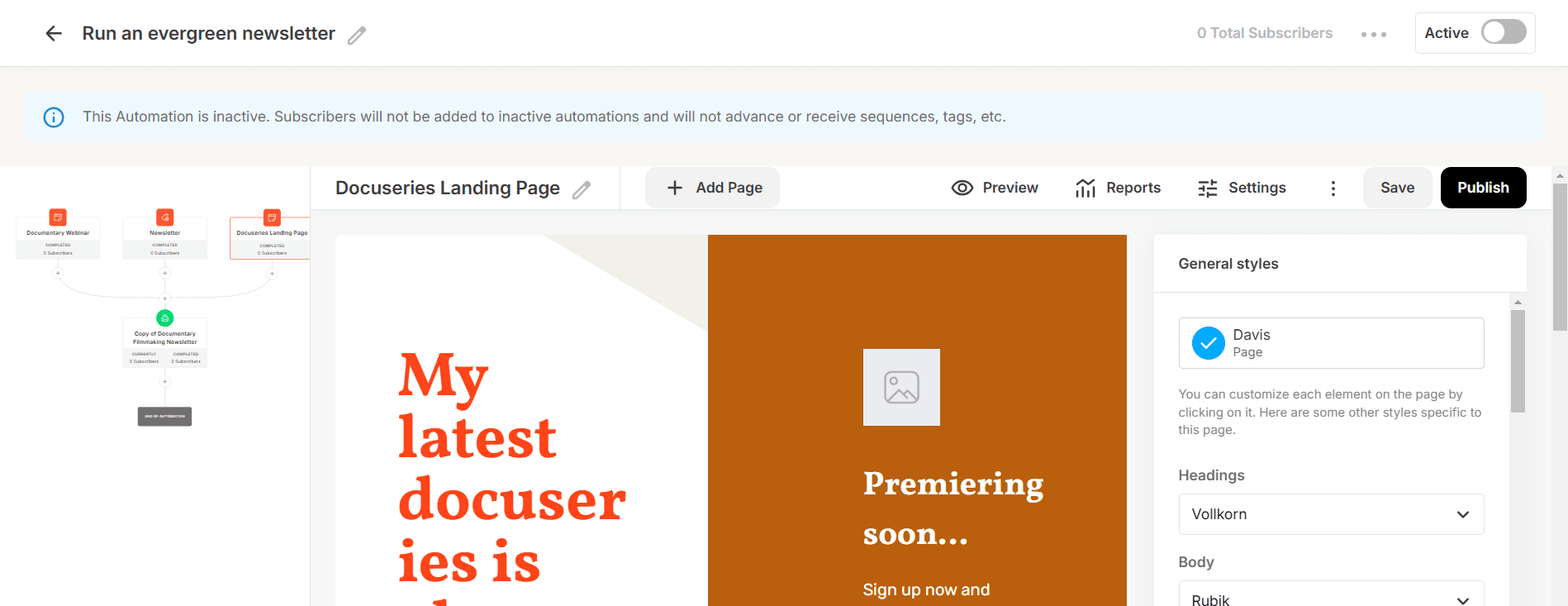
Kit was built specifically for creators who need to monetize their audience. Direct product sales, course delivery, and subscriber tagging make it perfect for bloggers, podcasters, and online educators.
Kit offers a generous free Newsletter plan for up to 10,000 subscribers. Paid plans start at $29/month for the Creator plan (1,000 subscribers) and $59/month for the Creator Pro plan (1,000 subscribers). The automation sequences are designed around creator workflows – welcome sequences, product launches, and audience segmentation based on interests and engagement levels.
Second choice: Beehiiv. Newer platform gaining traction with newsletter creators. Strong analytics, referral programs, and monetization features specifically for content creators.
Ideal for content creators, coaches, and online course sellers who need creator-specific features.
Platform Pricing Includes Hidden Costs Beyond Monthly Fees
Monthly subscription fees tell only part of the story. Most platforms raised prices 20-30% in 2025, and hidden costs can double your actual expenses.
| Platform | Starting Price | Free Plan | Best For |
|---|---|---|---|
| Mailchimp | $13/month (Essentials) | Yes (500 contacts) | Comprehensive ecosystems |
| Brevo | $9/month (Starter) | Yes (unlimited contacts) | Small businesses |
| Kit | $29/month (Creator) | Yes (10,000 subscribers) | Content creators |
| ActiveCampaign | $15/month (Starter) | 14-day trial only | B2B automation |
| Klaviyo | $20/month (Email) | Yes (250 contacts) | Ecommerce |
Additional Services Add 30-50% to Your Monthly Budget
SMS integration costs $0.015-0.05 per message. Dedicated IP addresses add $30-100 monthly. Professional email design? $150-500 per email. List verification services? $50-200 monthly.
Enterprise implementations can hit $5,000-50,000 for complex integrations. Budget an extra 30-50% beyond subscription costs for the tools and services you'll actually need.
Platform Selection Depends on Your Business Model and Growth Stage
Ecommerce businesses should prioritize Klaviyo or Omnisend for specialized retail features and revenue attribution. These platforms integrate seamlessly with online stores and provide behavioral triggers essential for cart abandonment recovery.
B2B companies benefit most from ActiveCampaign or GetResponse, which offer sophisticated lead scoring and automation. Perfect for nurturing complex sales cycles and account-based marketing strategies.
Content creators and small businesses often find the best value in Kit or Beehiiv. These platforms provide creator-specific features like direct product sales and audience monetization tools.
Small businesses on tight budgets should consider Brevo or Sender for unlimited contacts and affordable pricing without sacrificing essential features.
Agencies and established businesses needing comprehensive marketing ecosystems should evaluate Mailchimp or Constant Contact for extensive integrations and multi-channel capabilities.
What type of business are you running? The answer should guide your platform choice.
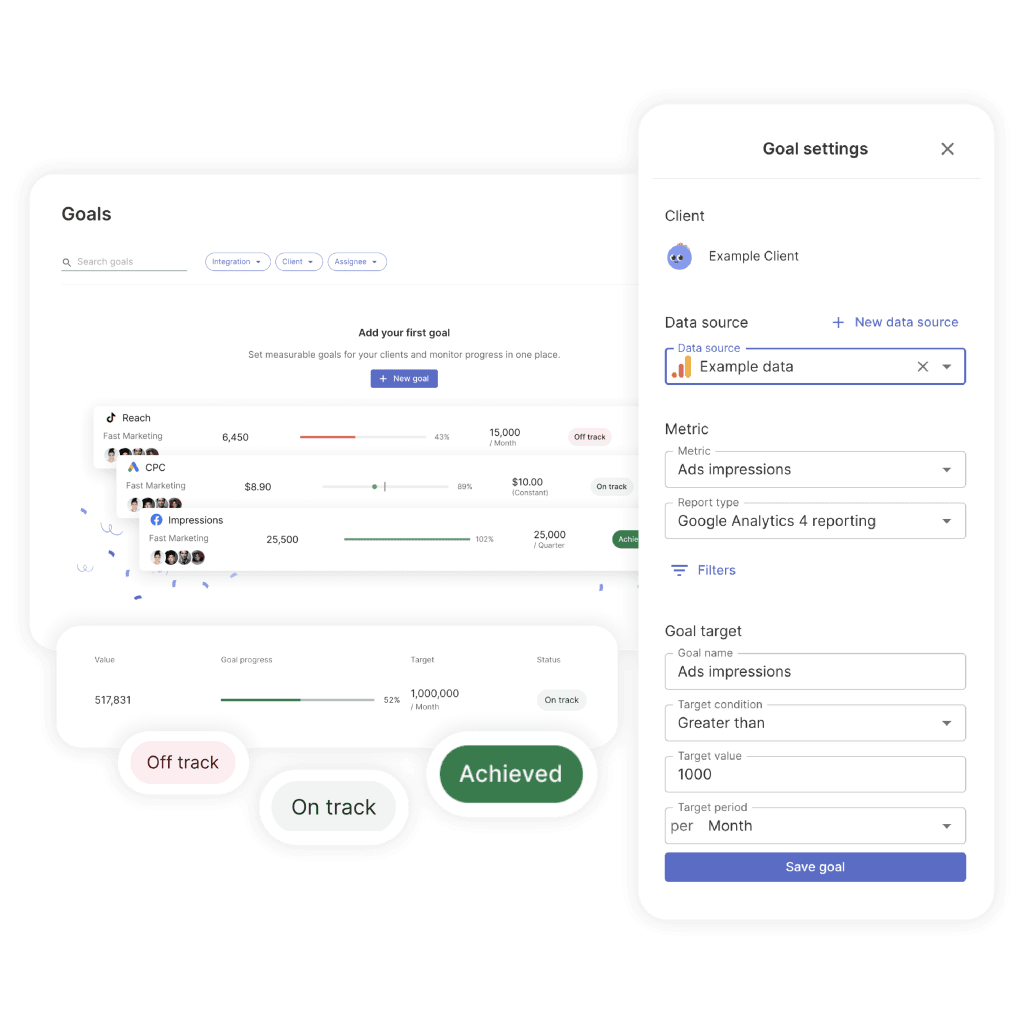
Successful Implementation Requires 3-6 Months of Strategic Development
Successful email marketing implementation typically takes 3-6 months for most businesses. Complex enterprise deployments? 6-12 months. Start with core functionality and gradually expand rather than trying to implement everything immediately.
Priority order:
- List building and segmentation
- Automated welcome sequences
- Basic promotional campaigns
- Advanced behavioral triggers
- Predictive analytics
Regular testing and optimization separate successful email marketers from those who struggle. A/B testing correlates with 37% higher returns (Litmus). Companies implementing regular optimization see dramatically better engagement rates over time.
Match Your Platform Choice to Your Business Goals and Technical Requirements
The best email marketing tool depends on your specific needs, technical requirements, and growth trajectory. Mailchimp excels for comprehensive marketing ecosystems, ActiveCampaign dominates B2B automation, Klaviyo rules ecommerce, Brevo provides excellent value for small businesses, and Kit serves content creators perfectly.
Success depends less on choosing the "perfect" platform and more on implementing strategic email marketing practices with consistent optimization. Start with your core requirements, budget for ongoing costs, and plan for growth when making your selection.
The platforms investing in AI capabilities, maintaining excellent deliverability, and providing responsive customer support will continue leading the market as email marketing evolves.
Think about where you want your business to be in two years. Which platform will support that growth? The exceptional ROI potential of email marketing makes this one of the most important technology decisions for your business.
Email Marketing Platform FAQ
Find the right email marketing platform for your business with expert answers
Brevo is the best choice for beginners because it offers unlimited contacts on all plans starting at $9/month, has a clean interface, and includes automation features without overwhelming complexity. The free plan includes unlimited contacts with 300 emails per day.
ActiveCampaign is better for automation and B2B businesses with its 880+ pre-built workflows and built-in CRM. Mailchimp is better for comprehensive marketing with 500+ integrations and multi-channel capabilities. ActiveCampaign starts at $15/month, Mailchimp at $13/month.
Klaviyo dominates ecommerce with real-time syncing to Shopify, WooCommerce, and Magento. It provides predictive analytics and behavioral triggers specifically for online stores. Users report 40% higher average order values. Omnisend offers similar features at lower cost.
Yes. Kit offers free service for up to 10,000 subscribers. Brevo provides unlimited contacts with 300 daily emails. Mailchimp includes 500 contacts and 1,000 monthly emails. Sender allows 2,500 subscribers with 15,000 monthly emails on their free plan.
Kit was built specifically for creators with direct product sales, course delivery, and subscriber monetization features. It offers a free plan for 10,000 subscribers. Beehiiv is gaining popularity among newsletter creators with strong analytics and referral programs.
Email marketing costs range from free plans to $350+ monthly. Budget $9-29/month for small businesses, $49-149/month for growing companies, and $350+ for enterprises. Additional costs include SMS ($0.015-0.05 per message), dedicated IPs ($30-100/month), and design services ($150-500 per email).
| Platform | Starting Price | Free Plan | Best For |
|---|---|---|---|
| Brevo | $9/month | Unlimited contacts | Small businesses |
| Mailchimp | $13/month | 500 contacts | Multi-channel marketing |
| ActiveCampaign | $15/month | 14-day trial | B2B automation |
| Klaviyo | $20/month | 250 contacts | Ecommerce |
| Kit | $29/month | 10,000 subscribers | Content creators |
Essential features include automation workflows, list segmentation, A/B testing, mobile-responsive templates, analytics and reporting, integrations with your existing tools, deliverability monitoring, and customer support. Advanced features include predictive analytics, behavioral triggers, and CRM integration.
You need a dedicated IP if you send over 100,000 emails monthly or have strict deliverability requirements. It costs $30-100/month and gives you full control over your sender reputation. Smaller senders often get better deliverability using shared IPs with established reputations.
Most platforms now offer SMS integration. Brevo, Klaviyo, and ActiveCampaign include SMS features. SMS costs $0.015-0.05 per message and typically has 98% open rates compared to 20-25% for email. Use SMS for urgent notifications and email for detailed content.
Basic setup takes 1-2 weeks. Full implementation requires 3-6 months for most businesses. Start with list building and welcome sequences, then add promotional campaigns, behavioral triggers, and advanced analytics. Enterprise setups can take 6-12 months.
These are email authentication protocols required by Gmail, Yahoo, and Microsoft. SPF verifies which servers can send from your domain, DKIM adds digital signatures, and DMARC sets policies for failed authentication. Most email platforms help configure these automatically.
Export your list as a CSV file from your current platform, clean the data by removing duplicates and invalid emails, then import to your new platform using their import tool. Most platforms provide migration assistance and list verification services to ensure good deliverability.
No technical skills required for basic email marketing. Modern platforms offer drag-and-drop editors, pre-built templates, and automated workflows. You may need help with DNS settings for authentication and advanced integrations, but most daily tasks are user-friendly.
Yes. Most email platforms integrate with popular CRMs like Salesforce, HubSpot, and Pipedrive. ActiveCampaign includes a built-in CRM. These integrations sync contact data, track email engagement in your sales pipeline, and trigger automated sequences based on CRM actions.
Email marketing delivers $32-45 for every $1 invested on average. Ecommerce businesses often see higher returns through automated cart abandonment and post-purchase sequences. Results depend on list quality, segmentation, and consistent optimization through A/B testing.
Good open rates range from 20-25% across industries, with click rates around 2-3%. B2B typically sees higher open rates (21-28%) while retail averages 15-20%. These vary by industry, list quality, and email frequency. Focus on engagement trends rather than absolute benchmarks.
Send 1-3 emails per week for most businesses. Ecommerce can send daily during promotions. B2B works well with weekly newsletters plus triggered emails. Test frequency with your audience - some prefer daily updates while others want monthly communication. Monitor unsubscribe rates to find your sweet spot.
Common causes include missing authentication (SPF, DKIM, DMARC), poor sender reputation, spam trigger words, low engagement rates, purchased email lists, and inconsistent sending patterns. Use double opt-in, clean your list regularly, and warm up new domains gradually.
Set up proper authentication, maintain list hygiene by removing inactive subscribers, use double opt-in for new subscribers, write engaging subject lines that avoid spam triggers, send consistently, and monitor your sender reputation. Choose platforms with strong deliverability track records like ActiveCampaign.
Absolutely. 55% of emails are opened on mobile devices. Use responsive templates, keep subject lines under 40 characters, use large buttons and fonts, and test on multiple devices. Mobile-optimized emails see significantly higher engagement and conversion rates.
Show clients the true impact of your email marketing campaigns with comprehensive reporting.
Start Your Free Trial Today- Platform Selection Determines Your Marketing Success in 2025
- Five Email Marketing Platforms That Dominate the Market
- Platform Pricing Includes Hidden Costs Beyond Monthly Fees
- Additional Services Add 30-50% to Your Monthly Budget
- Platform Selection Depends on Your Business Model and Growth Stage
- Successful Implementation Requires 3-6 Months of Strategic Development
- Match Your Platform Choice to Your Business Goals and Technical Requirements
- Email Marketing Platform FAQ
